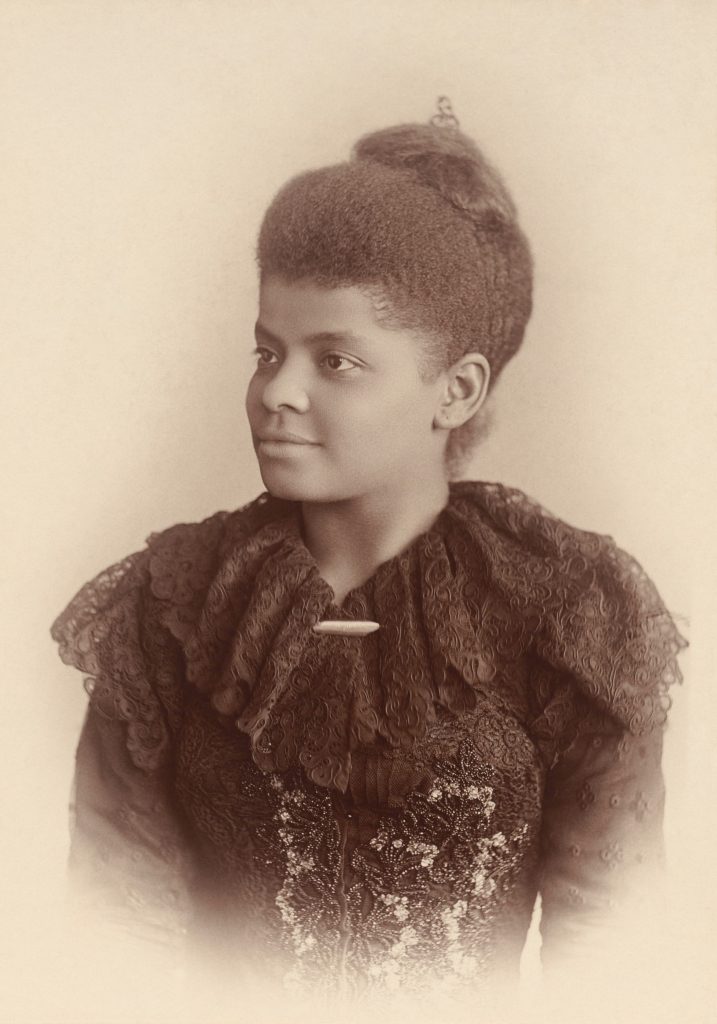In January 1900, Ida B. Wells confronted a Chicago audience of the horrors of lynching. Armed with gruesome statistics, she had documented an average of two hundred lynchings every year in the United States. Now that slavery was abolished, Wells acknowledged that lynching was the country’s “national crime.” Today’s blog will explore this landmark January speech, “Lynch Law in America.”

Ida B. Wells was the first person to use the power of statistics to highlight the horror of lynching. In many ways she established modern fact-finding journalism. Speaking in Chicago, a city that at least in theory would support the ending of this racist atrocity, she hoped to equip future supporters of racial equality in order to inspire government action against mob murder.
Calling out her country, Wells maintained that it was time the United States acknowledged “herself a failure at self-government.” “The reign of national law,” she lamented, “was short-lived and illusionary.” By strategically pronouncing its guilt in the death of thousands of Black Americans, she hoped to ensure a confession by the government. Of course, the fact that Jim Crow lasted sixty more years meant that her call to action was ignored.
Although direct legislative change did not result from this and other speeches from Ida B. Wells (Congress did not pass an anti-lynching bill until 2018), her voice was no less important for America at the turn of the 20th century. Not only did Wells’ voice provide a woman’s perspective into what was often a male-dominated culture, but she demonstrated that racism could be countered with data. While her claims exhibited a pathos that was often found in the speeches of the 19th century’s most famous African American, Frederick Douglass, she grounded her appeals in fact.
Ida B. Wells paved the way for documenting racism, something that we see in today’s social media. Forcing her audience to deal with the fact that many lynchings were grounded in hearsay and not evidence, she was able to force those who might be apathetic to the plight of many Black Americans in the South to see that in many cases, “men have been put to death whose innocence was afterward established.” In a world where a black man could be murdered with nothing but rumors supporting his guilt, Wells refused to operate her own claims off similar errors. She rose above.
Ida B. Wells became a voice for African American justice at the turn of the 20th century. The implication of her speech’s title—that lynching had become America’s law—would surely have caused her audience to pause, and the entirety of her speech provided the facts necessary for them to reflect upon. Today, we should take time to pause again. Let’s remember Wells and what she stood for and stand up for justice too.